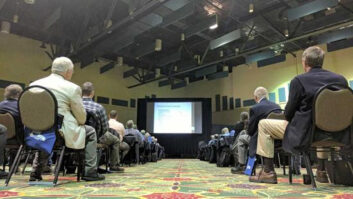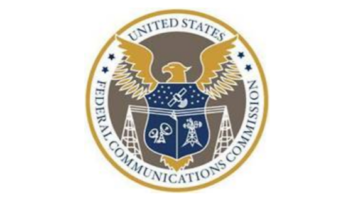
Reaction from U.S. radio industry groups has been strong to the news we reported last week — that the FCC is considering a scaled-back FM translator plan as part of its efforts to help licensees on the AM band.
We told you that the commission staff appears to be considering a waiver of rules that limit how far existing FM translators can move. While such a change might be welcome to AM broadcasters, most seek a more dramatic step: a window in which most AM stations could actually apply for new FM translators.
According to the National Association of Broadcasters, a move waiver would hardly serve to revitalize AM radio at all. “Without the exclusive window for AM stations to apply for FM translators, the commission could no longer claim that it is ‘revitalizing’ the AM band,” the NAB wrote in a letter to the FCC. Emphasizing its message, NAB President Gordon Smith raised the topic during a meeting this month with Commissioners Ajit Pai, Michael O’Rielly and Jessica Rosenworcel and their staffs.
The idea floating at the commission would allow stations to relocate FM translators up to 250 miles.
In its letter, NAB said the omission of a translator filing window as part of revitalization would be a blow to localism. A filing window is particularly important for small-market broadcasters attempting to serve local communities, the association wrote. “Radio, as much as any other medium, is local,” the letter said. “Without the ability to reach listeners, many stations can no longer survive in this incredibly competitive marketplace.”
NAB lamented economic and geographic challenges facing AM stations and reiterated the importance of the band in ensuring diverse viewpoints.
“I think the 250-mile translator relocation proposal is well-intentioned, but I have two concerns with it,” Francisco Montero told Radio World. He is a managing partner at the law firm Fletcher, Heald and Hildreth, and filed comments at the FCC after meetings involving Commissioner Mignon Clyburn, staff of the Media Bureau, the Multicultural Media, Telecommunications and Internet Council and the National Association of Black Owned Broadcasters.
Montero said the FCC staff seems to be “aggressively pitching” the waiver idea. But he feels that a waiver might favor larger and better-funded groups over smaller AM stations with fewer resources to compete for those translators.
“I’m fine with the 250-mile relocation waiver … if it accompanies an application filing window,” Montero told us. “But if it’s intended to replace the filing window or act as a compromise or distraction from the chairman’s decision to remove and oppose the FM translator filing widow, I think it sells AM short.” Chairman Tom Wheeler has publicly voiced doubts about a translator window specifically to benefit AM operators.
Others worry that a 250-mile relocation window would simply create more competition for a sector where low-power FM signals are already highly sought after.
“In a nutshell, the 250-mile translator relocation window would only create an even bigger bidding war for available translators,” said Tom McAuliffe, president of WMRC(AM) in Milford, Mass., “a bidding war AM owners like myself would never have a chance to win. From my city of license, 250 miles would not only put me in competition with Boston and Worcester, Mass., markets, but Providence, R.I., Hartford Conn., and New York City. Is this really a battle I would have a chance to win?”
Big radio owner iHeartCommunications stressed again the importance of a window for AM stations to apply for FM translators; that should include all classes of AM stations, not just one. “Moreover, such a window, whether for new FM translators or for more flexible modification of existing FM translator authorizations, should be of a set duration and capable of quick implementation, as AM stations need relief now,” iHeart wrote in a letter to the FCC.
Related:
Let’s Talk About Translators (A special Radio World series by John Garziglia)











